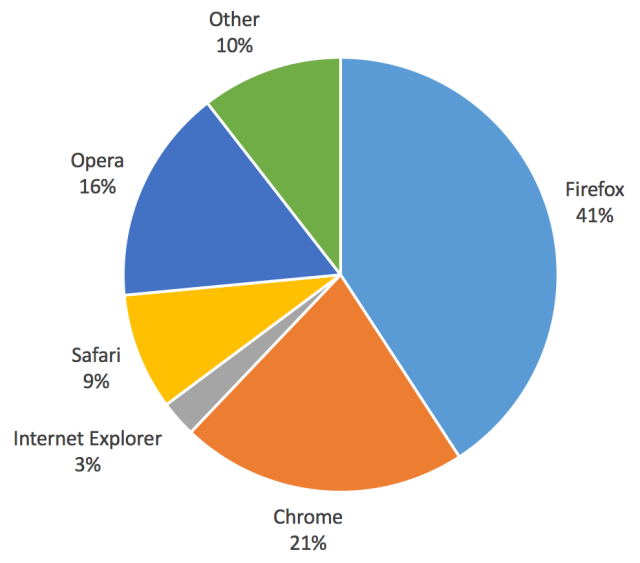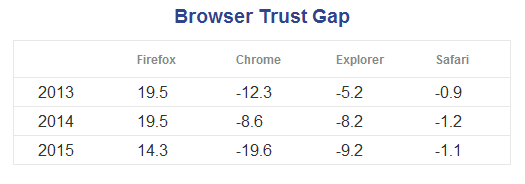The last three years, the company ασφαλείας Sophos ζητάει από τους αναγνώστες της ιστοσελίδας τους να απαντήσουν στην ερώτηση: “Ποιο πρόγραμμα browsing do you trust?”
Every October the company publishes the results of the poll. The winner of the 2015 poll (as well as the previous two years) is Firefox with a percentage of 41% from 3928 votes.
According to Sophos second in the list is Google Chrome with 21%. Followed by Opera with 16%, and Safari with 8%, reproducing the results of the previous year's poll.
Άλλα προγράμματα περιήγησης που υπάρχουν στα αποτελέσματα, αλλά με πολύ μικρά ποσοστά περιλαμβάνουν το Tor με 6%, τον Internet Explore με 3%, και τον Microsoft Edge, τόσο με 2%.
What's strange is the fact that Tor, the browser made famous by Edward Snowden, is one of the last in user preferences.
It should be noted that the poll is in no way indicative of how popular the browsers and the Trust Gap in the table below shows that many users visited the poll page with one browser and voted with another.

As you can see, Chrome, the browser most widely used in the world, according to all browser usage statistics, has not yet conquered its users' hearts.
According to the data, Chrome has a gap of -19,6% (meaning browser confidence), meaning that of the 40.78% of the users who voted in the poll using Chrome, 19,6% of them voted another browser.
Perhaps this is what we expected more from Internet Explorer users, and less about Chrome. The simplest explanation is that Chrome has been developed by Google, a company that does not trust the Internet audience so much.





